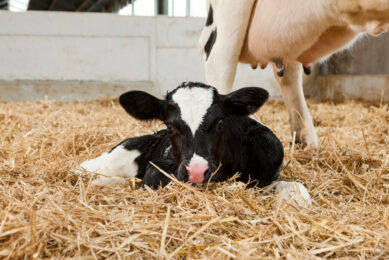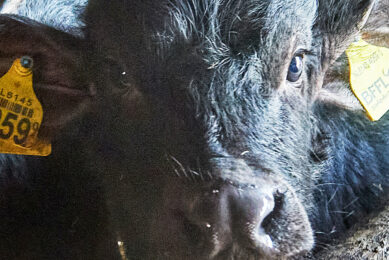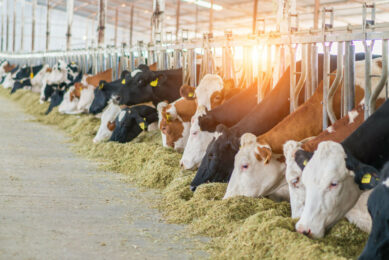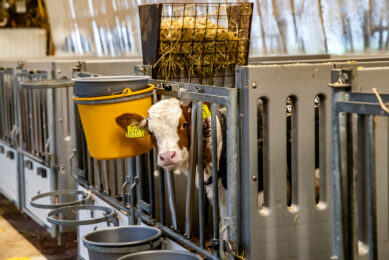How social housing affects dairy calves
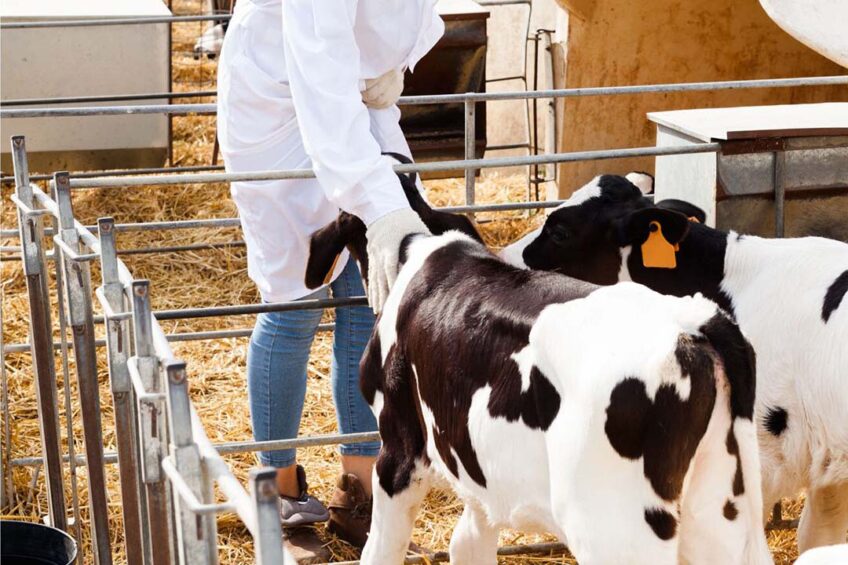
Recently published studies show that housing designed to facilitate early socialisation can build behavioural skills, shape calf personalities and set up animals for success in the herd.
Personality is of growing interest in dairy cattle as it may be associated with outcomes related to an animal’s performance and welfare, including feeding behaviour and weight gain for calves and milk production in adults.
Competitive access to resources has been the focus of a new study led by Marina von Keyserlingk of The University of British Columbia in Canada. During this first-of-its-kind competition study for this age group, the team focused on how paired housing might impact the social competition skills of pre-weaning dairy calves.
Calves’ competitive skills
“We know from previous research that adoption on social housing – or pairing 2 or more calves together – can positively impact future resilience and behaviour,” said Von Keyserlingk. “We wanted to understand the effect of early social housing on dairy calves’ competitive skills, meaning their willingness and speed to take action toward consuming milk when another calf is in contention for the same bottle.”
The research team looked at a group of 18 3-week old bull and heifer calves that had been divided equally into either individual or pair housing at 11 days of age. At the start of the study, the calves were tested to control for the influence of naturally bold personalities on their competitive abilities. Once the team identified their personalities, calves from each housing group were paired together for a competition over a single milk bottle.
Paired vs individually-housed calves
Over 5 days of testing, the results showed that pair-housed calves spent, on average, more time drinking from the bottle and were faster to approach the milk than individually housed calves: “Our findings add to the growing evidence that early social housing is beneficial for dairy calves and boosts the behavioural development – such as competition skills – that builds toward future success.”
The second study, carried out at the Department of Animal Sciences at the University of Florida, examined how group housing impacts dairy calf personality traits. Led by Emily Miller-Cushon, the team set out to understand how social housing can influence a calf’s eventual personality traits after birth and during the early pre-weaning period.
The team studied 32 heifer and bull calves for 4 weeks starting at birth. For the first 2 weeks, the calves were split into 2 groups (either individually housed or housed in pairs) before they all moved to group housing at 4 weeks. They then tested the calves’ reaction to standardised tests for assessing personality traits; an open field, a novel object, an unfamiliar calf and an unfamiliar human.
Miller-Cushon said: “We found that the calves housed in pairs were bolder compared with calves individually before grouping when it came to novel objects and unfamiliar calves, which suggests that early-life social contact does have the potential to influence personality traits in group-housed calves.”
· The 2 studies have been published in JDS Communications: Social housing improves dairy calves’ performance in a competition test – JDS Communications and Social contact from birth influences personality traits of group-housed dairy calves – JDS Communications
Join 13,000+ subscribers
Subscribe to our newsletter to stay updated about all the need-to-know content in the dairy sector, two times a week.



